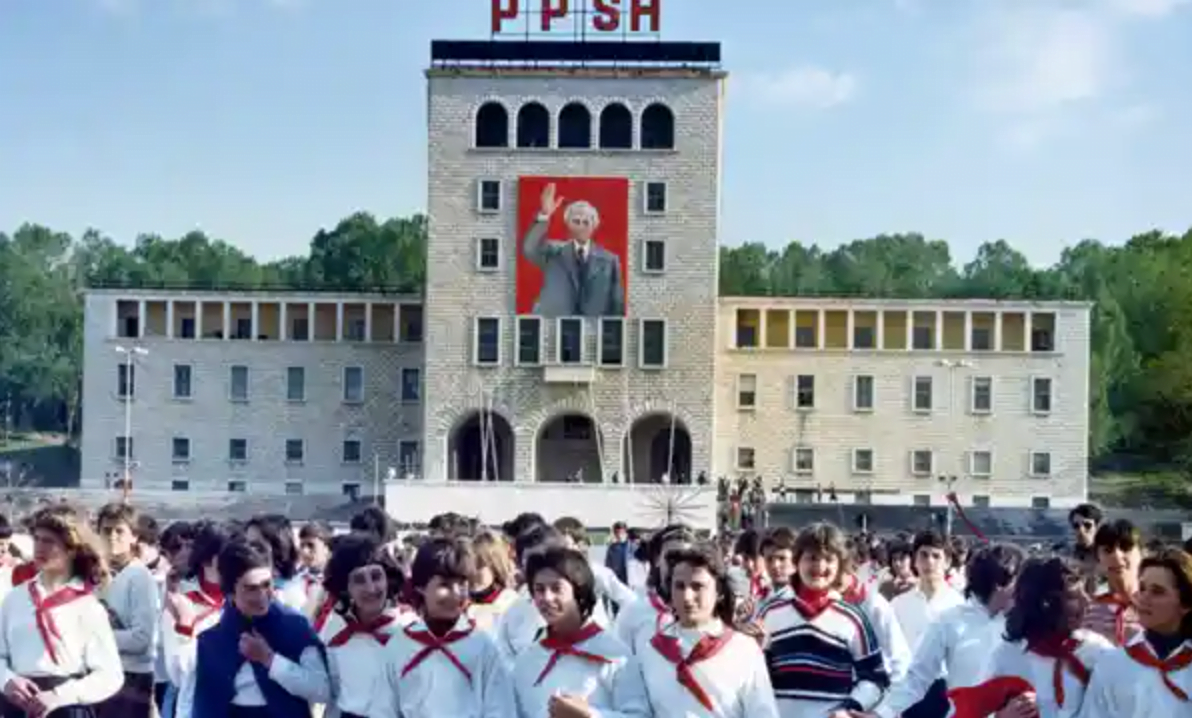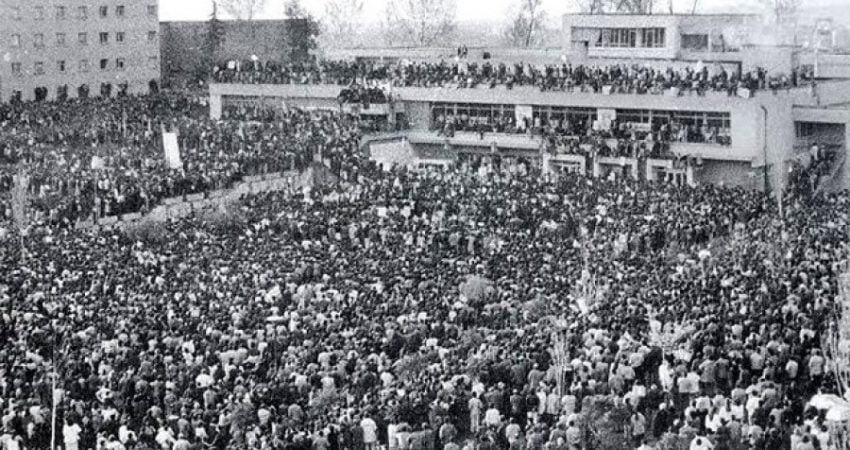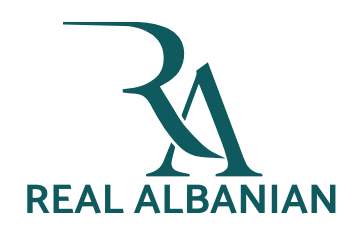If you have spent any amount of time in Albania you will know that there are a few public holidays on the calendar that you have never heard of – and Youth Day in Albania is one of those.
Youth Day is a national holiday in Albania and it’s celebrated on December 8th every single year. And it has nothing to do with the international youth day that is observed internationally at some point in August.
This public holiday is deeply tied to the more recent history of Albania.
Youth Day in Albania Explained
Youth Day in Albania is celebrated in commemoration of the student protests of the year 1990, protests that would later lead to major political reforms across the country.
But to understand what happened, we need to take a trip back in time to Albania before the year 1990.
The situation before Youth Day in Albania
Since 1976 Albania has been officially named ‘The People’s Socialist Republic of Albania’.
Although Albania was never part of the Soviet Union, unlike the surrounding countries, Albania was still a one-party communist state and by most considered a totalitarian regime.
The country was ruled by Enver Hoxha, first secretary of the Labour Party, based on Stalinist ideals and policies focused on national unity and self-sustainability. The travel and visa restrictions in place made Albania one of the most difficult countries to visit or travel out of.

Overall there was a high degree of state control with the secret police (commonly known as Sigurimi) working to repress any voices speaking up against the government or its officials. Measures taken included removal from employment, forced labour camps and even executions.
Life for people was far from easy, and there was always work to do, whether it’s employment from Monday to Saturday or community work, like cleaning streets and picking fruits, on Sundays.
Hoxha himself died on 11 April 1985 and he was succeeded by Ramiz Alia (who was hand-selected by Hoxha himself prior to his death). Alia became the legal secretary of the party two days later. He continued to operate in line with Hoxha’s policies, remaining in firm control of the country through the security agencies.
Albania’s economic situation however was declining and Alia had no choice but to implement reforms with the purpose of establishing diplomatic relations with West Germany, Italy and France – mostly for the purpose of receiving development aid.
This time period in general was a very unstable period for communist regimes across Europe and the East. Gorbachev was introducing new reforms in Russia that led to the fall of the Berlin Wall in November 1989 and with it brought down communist regimes across Europe.
In December 1989 the communist leader of Romania, Nicolae Ceaușescu, was executed in a revolution, and this made Alia speed up his process of reform across Albania, potentially in fear of the same fate.
Alia finally signed the Helsinki agreement, which had already been signed by almost all other European countries in 1975 (excl. Andorra).
This agreement included states committing to refraining from the threat or use of force, peaceful settlement of disputes and Respect for human rights and fundamental freedoms, including the freedom of thought, conscience, religion or belief amongst other things.
On the 8th of December 1990 a student demonstration broke out in Tirana, which is why we now celebrate Youth Day in Albania on this date.
The protest originally started because of lack of electricity, but ideas quickly evolved. Within 3 days there were more than 3000 protesters and they were now calling for political change across the country.
The number 3000 may now seem like a lot, in the context of today’s protests that attract hundreds of thousands of people, but given the political situation and level of police control, this was quite an impressive feat.

On December 11th 1990, under huge pressure from students and workers, Alia announced that the Party of Labour had given up its guaranteed right to rule, that other parties could be formed in the state, and that free elections would be held in the spring of 1991.
The Democratic Party was founded the following day.
Youth Day in Albania is an official public holiday since parliament voted to include it in 2009.
If you’re interested in learning more about this topic, then there are 2 different episodes of Opinion (in shqip) that you can watch.


0 Comments